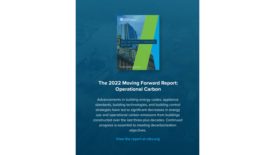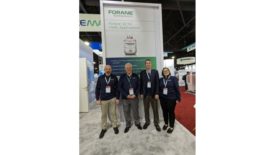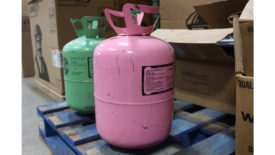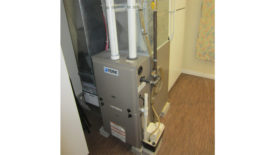Home » Keywords: » greenhouse gas
Items Tagged with 'greenhouse gas'
ARTICLES
Low-GWP Refrigerants Take Center Stage
New solutions are designed to replace R-410A, R-134a, and others
Read More
EPA Proposes Ban on R-410A Starting in 2025
New air conditioners and heat pumps would have a GWP limit of 700 under the new rule
Read More
Washington State Pushes for Heat Pumps
Energy regulations in Washington state to mandate them for most new buildings
Read More
HVAC Industry Fired Up Over Fossil Fuels
Groups seeking to phase out gas and oil appliances get some pushback
Read More
EVENTS
Sponsored Webinar Engineered Systems NEWS Events
11/29/23 to 11/29/24
Contact: Ian
Tomorrow’s Energy Today Sustainable Fuels
Copyright ©2024. All Rights Reserved BNP Media.
Design, CMS, Hosting & Web Development :: ePublishing












